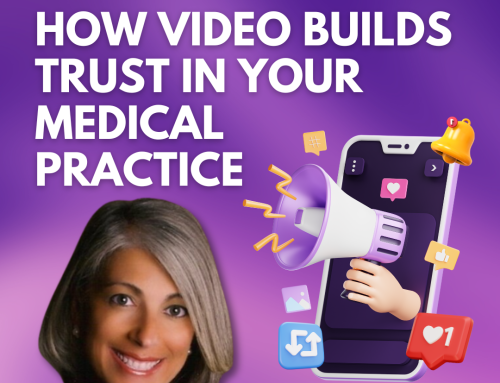Podcast: Play in new window | Download
Subscribe: RSS
In this episode, Dr. Barbara Hales interviews Dr. Jimmy Moley, a board-certified adult and sports psychiatrist, about starting a private practice.
- Dr. Moley shares the challenges of networking in a new city and how he overcame them through one-on-one meetings, joining local chambers, and leveraging trusted mentors.
• He highlights the importance of part-time work as a financial buffer, allowing him to build his practice intentionally.
• Marketing strategies such as social media, personal branding, and targeted networking with professionals and trainers have been key to his success.
• He emphasizes the role of patient trust, holistic care, and emergency response preparedness in private practice.
Key Takeaway:
“Personal branding and authentic connections are the foundation of a successful private practice. Patients seek more than just medical care—they seek trust and personalized attention.” – Dr. Jimmy Moley
Connect with Dr. Jimmy Moley:
- Website: www.jimmymoleymd.com
• X (Twitter): @jimmymoleymd
• Instagram: @jimmymoleymd
Connect with Barbara Hales:
Twitter: @DrBarbaraHales
Facebook: facebook.com/theMedicalStrategist
Business website: www.TheMedicalStrategist.com
Show website: www.MarketingTipsForDoctors.com
Email: info@TheMedicalStrategist.com
YouTube: TheMedicalStrategist
LinkedIn: www.linkedin.com/in/barbarahales
Books:
Content Copy Made Easy
14 Tactics to Triple Sales
Power to the Patient: The Medical Strategist
TRANSCRIPTION (188)
Introduction
Dr. Barbara Hales: Welcome to another episode of Marketing Tips for Doctors. I’m your host, Dr. Barbara Hales. Today, we have with us Dr. Jimmy Moley. He is a board-certified adult and sports psychiatrist based in Independence, Ohio. He completed his undergraduate training at the University of Notre Dame, medical school and adult psychiatry residency at The Ohio State University, and a certificate in sports psychiatry through the International Society for Sports Psychiatry. He now owns and operates a solo private practice and is licensed in Ohio and Florida. His interests include the mental health care of athletes, impact and treatment of head injuries, and the use of psychotherapy to improve athletic performance. Welcome to the show.
Dr. Jimmy Moley: Thank you very much for having me.
Dr. Barbara Hales: It’s my pleasure. Where in Florida do you practice?
Dr. Jimmy Moley: So my physical practice is located up near the Cleveland area. All of my work in Florida is done via telehealth.
Dr. Barbara Hales: Okay. Do you ever come down to Florida?
Dr. Jimmy Moley: Yeah, I like to visit. I actually vacationed there a lot as a family growing up. So I always like to make it down. A lot of people from the Cleveland area vacation or live part-time in Florida, so it kind of makes sense to have both on board.
Challenges in Starting a Private Practice
Dr. Barbara Hales: What were the biggest challenges you faced when starting out, and how did you overcome them?
Dr. Jimmy Moley: Sure. So I did my medical school and residency at Ohio State. Coming to Cleveland, it was a new area, and I was relatively unfamiliar with the local resources. Starting up as a solo practitioner in the area presented challenges related to networking and trying to find my place as a new private practice doctor. One of the biggest things I did early on was schedule a lot of meetings and try to reach out to as many professionals as I could. This meant connecting with other psychiatrists, primary care doctors, professionals from other medical specialties, and even non-medical professionals to integrate myself into the local community.
I also connected with a trustworthy lawyer and accountant who helped me navigate the business side of starting a practice, which isn’t something heavily covered in medical training. Additionally, I identified a few trusted mentors from Columbus, where I previously trained, and relied on their guidance. One of the biggest lessons I always share is knowing what you don’t know and seeking experts to help you along the way.
Transitioning from Startup to Success
Dr. Barbara Hales: Was there a turning point or a pivotal moment that helped you transition from startup to success, and how did you seize that opportunity?
Dr. Jimmy Moley: Yeah. I wanted to be very intentional in how I built my practice—choosing the right patient population and practice environment—so I knew the process would be slow. To support myself financially while growing the practice, I took on part-time work doing veteran evaluations for disability benefits. That was a helpful turning point because it allowed me to take my time building the practice exactly as I wanted without feeling rushed.
Marketing Strategies for Private Practice
Dr. Barbara Hales: What are the top strategies you’ve used to market yourself effectively in your field, and how do you think these could be adapted for other healthcare professionals in private practice?
Dr. Jimmy Moley: A few different strategies have worked well. The most effective has been personal one-on-one networking meetings, especially with primary care doctors and therapists who handle referrals. Meeting professionals face-to-face helps build trust and makes referrals easier.
I also joined the local chamber of commerce and attended networking events. This was extremely effective for meeting like-minded professionals and spreading awareness about my services.
Lastly, social media has played a big role. I created a website and an Instagram account where I post regularly and engage with other professionals both locally and nationally.
The Importance of Personal Branding
Dr. Barbara Hales: What role has personal branding played in your success? What advice would you give to doctors looking to establish their personal brand?
Dr. Jimmy Moley: Personal branding is especially important in private practice. Many patients come to private practices because they seek a more personal connection compared to larger hospital systems. Personal branding helps patients feel they can trust you. Unlike hospital systems where patients rely on the clinic’s reputation, in private practice, your personal reputation is everything.
Connecting with the Right Audience
Dr. Barbara Hales: Would you say your personal brand helped you connect with your ideal audience? What lessons can private practitioners learn from your approach?
Dr. Jimmy Moley: Definitely. I’ve found that having a specific niche—in my case, sports psychiatry—helps in connecting with certain groups. My background allows me to reach gyms, personal trainers, and the broader sports community. Finding a niche can help private practitioners stand out and build strong referral networks.
Quick and Impactful Marketing Strategy
Dr. Barbara Hales: If a doctor wanted to improve their marketing today, what is one quick and impactful strategy they can implement immediately?
Dr. Jimmy Moley: Social media is accessible to everyone, but I recognize it can be overwhelming. I recommend starting small by focusing on one platform—Instagram worked best for me. However, I still believe in-person networking is the most effective marketing strategy. Meeting people one-on-one has generated the most referrals and built the strongest connections.
Common Mistakes in Marketing
Dr. Barbara Hales: What is a common mistake professionals make when marketing themselves, and how can doctors avoid it?
Dr. Jimmy Moley: A common mistake is focusing too much on medical services rather than the patient experience. Many patients seek private practice care because they want a more personalized approach. Instead of just advertising medical treatments, emphasize the value of patient care, the personal connection, and what makes your practice unique.
Handling Emergency Situations
Dr. Barbara Hales: Patients in private practice expect a more personal connection. How do you handle emergencies while maintaining work-life balance?
Dr. Jimmy Moley: Emergencies, especially in psychiatry, are critical. My official policy is to respond within 24 hours, though in practice, I often respond within 10-15 minutes when available. I also have a backup system through a network of psychiatrists who can cover for me when necessary. Additionally, I keep two open slots at the end of each day for same-day or urgent appointments, which has been very helpful for patient care.
Final Advice for Private Practitioners
Dr. Barbara Hales: Any last helpful hints or advice for our listeners?
Dr. Jimmy Moley: Building a private practice is a long-term game. There are weeks where referrals are high and others where they are low, but the key is patience and intentionality. Having other sources of income while growing the practice can ease financial stress and allow for a more deliberate approach.
Dr. Barbara Hales: Thank you for being on the show today. I’m sure our listeners have gained valuable insights from your experience. This has been another episode of Marketing Tips for Doctors with your host, Dr. Barbara Hales. Until next time!



